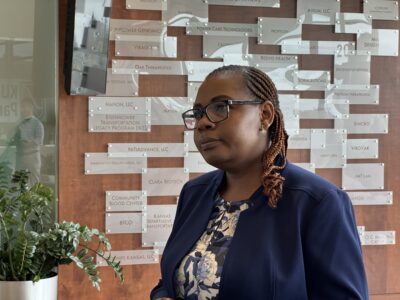State law from 1994 prevents charity ball for Kansas Governor-elect Sam Brownback’s inauguration
Topeka ? Kansas Gov.-elect Sam Brownback said he wanted his inaugural ball to raise money for charity, but he ran into an unexpected problem: state law won’t allow it.
Costs of the traditional dinner and dance are covered by ticket sales and cash contributions from supporters. Brownback wanted the funding that was left over to be given to charity, but a well-intentioned 1994 law requires that the money go toward the swearing-in ceremony and upkeep of the governor’s residence.
The Republican plans to ask legislators to rewrite the law after he takes office Jan. 10, the same day lawmakers open their annual session.
“How much better statement could you make, if we said, ‘We’re going to have a big ball, and we’re going to do it very cheap, and every dime over the amount goes to charity’?” Brownback said during an interview Tuesday with The Associated Press.
He’s promising to hold down costs of inaugural events, saying Kansas residents are still feeling the effects of the struggling economy. Charitable events will still be held in three communities as part of the festivities leading up to the inauguration.
Brownback’s dinner and ball are scheduled for Jan. 8, a Saturday evening. Tickets start at $125, though a $500 ticket gets its holder preferred seating at the ball and entry to a VIP reception beforehand.
But the events associated with the inauguration begin Jan. 5 with a blood drive in Hays, followed by a medical supplies repackaging event Jan. 6 at a community health center in Pittsburg and the stuffing of backpacks with food for needy children Jan. 7 at a Wichita food bank.
“I don’t want to send a message of a big expensive ball,” Brownback said. “I want to send the message that we want to help Kansans.”
Brownback’s inaugural committee also has a prayer service scheduled Jan. 9 at MidAmerica Nazarene University in Olathe. The swearing-in ceremony for Brownback and other statewide elected officials will be held at 11 a.m. Jan. 10, on the south steps of the Statehouse.
Legislators enacted the law that prevents Brownback from having a charity ball as a reaction to Democratic Gov. Joan Finney’s inaugural in 1991.
Like other governors before and since, she relied on private funds for the festivities outside the swearing-in ceremony. Her ball was free, but her inaugural committee hit up dozens of corporations for up to $10,000 each.
State law now limits contributions to $2,000, outside of ticket purchases, and requires inaugural committees to publicly disclose their donors. The law also requires that leftover funds must go to the state to defray costs associated with the swearing-in ceremony, then toward upkeep at Cedar Crest, the governor’s residence.
Senate Minority Leader Anthony Hensley, a Topeka Democrat, said he has no problem with Brownback’s proposal to allow extra funds to go to charity. He said after a three-year, $4.4 million renovation completed in 2000, the governor’s residence is “in pretty good shape.”
House Minority Leader Paul Davis, a Lawrence Democrat, said once the state’s costs for the swearing in are defrayed, “If we could go beyond that to assist some charities, that would be terrific.”
Inaugural festivities, though privately funded, have become elaborate.
Gov. Bill Graves, a Republican, spent about $351,000 on his first inaugural in 1995, and almost $312,000 on his second, four years later.
Democratic Gov. Kathleen Sebelius’ events for her first inaugural in 2003 cost almost $388,000 — and her committee turned another $89,000 over to the state, records show. She had pre-inaugural receptions at universities or high schools in six communities.
Four years later, Sebelius had five days of events in four cities that celebrated the arts and Kansas food. She had the traditional ball but ditched the sit-down dinner for “food stations” that allowed people to sample Sunflower State cuisine. The festivities cost more than $563,000, with $14,000 left over.
Davis said governors have done a good job of controlling costs, adding, “I think it’s proper for us to have a fitting celebration for a new governor.”
Hensley believes Brownback’s plans for a little more austerity are already showing. The invitation that Hensley received is 5 inches by 7 inches — smaller than in the past, and without gold embossing.
“I commend him for attempting to be more frugal and setting an example,” Hensley said.







